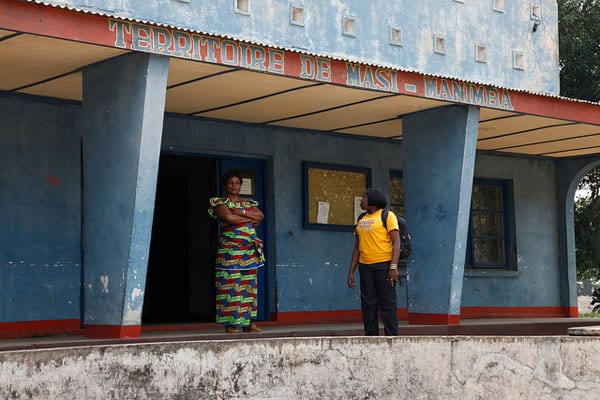
March 10, 2019; CNN
Healthcare centers in the Democratic Republic of the Congo run by Médecins Sans Frontières were attacked several times over the past month, causing MSF to close some of the clinics that provide much-needed care.
Susannah Cullinane of CNN attributed the attack to “militants.” MSF merely called them “unidentified assailants” and said they “[do] not know the motives or identities of the attackers.” Clinics in Butembo and Katwa have closed, but others in North Kivu province are open.
Complicating an already difficult sociopolitical situation, the Congo is presently battling yet another outbreak of Ebola, and it’s not going well. NPQ wrote in May about how diminished US resources for foreign aid would eventually increase the sufferings of people all over the world, especially when it comes to pandemics like Ebola. Nearly 1,000 cases have been confirmed in the Congo since 2018, and over 500 people have died.
World Health Organization (WHO) Director-General Dr Tedros Adhanom Ghebreyesus said in a statement,
These are not attacks BY the community; they are attacks ON the community. There are elements who are exploiting the desperation of the situation for their own purposes. The people of Katwa and Butembo, as in the other communities affected by Ebola, want and deserve a place to receive care and a chance of survival. They do not deserve to suffer in their homes while infecting their loved ones, they do not deserve to suffer in inadequately resourced health centers while infecting health workers.
MSF clinics have been targets before both in the Congo and elsewhere; NPQ reported how schools and hospitals, including MSF-run facilities, became targets in Syria in 2016. Then as now, the attacks seemed to be deliberate strikes on the health system, an effort to destabilize international aid efforts. MSF wrote,
Sign up for our free newsletters
Subscribe to NPQ's newsletters to have our top stories delivered directly to your inbox.
By signing up, you agree to our privacy policy and terms of use, and to receive messages from NPQ and our partners.
A range of issues have led to these tensions: from the massive deployment of financial resources focusing only on Ebola, in a neglected region suffering from conflict, violence and long-standing health needs; to elections being officially postponed due to the Ebola outbreak, exacerbating suspicions that Ebola is a political ploy.
International President of MSF Dr. Joanne Liu said,
We have a striking contradiction: on the one hand a rapid and large outbreak response with new medical tools such as vaccines and treatments that show promising outcomes when people come early—and on the other hand, people with Ebola are dying in their communities, and do not trust the Ebola response enough to come forward.
Emmanuel Massart, MSF’s Emergency Coordinator in Katwa, called the attacks “traumatic” and said that it has “crippled” MSF’s ability to respond in the epicenter of the outbreak.
WHO’s Ghebreyesus said, “We are committed to ending the outbreak, and we are committed to improving the health of the people of the Democratic Republic of the Congo.” MSF, a committed organization that is often first on the ground in a crisis, is keeping numerous other clinics in the region open and operational.—Erin Rubin
This article has been amended from its initial release based on information from a spokesman for Médecins Sans Frontières.













